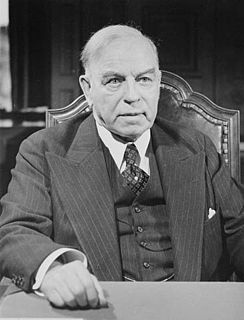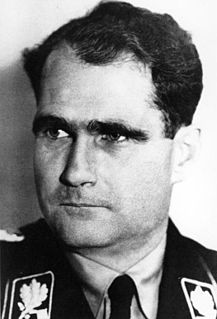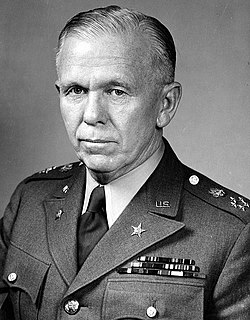A Quote by William Lyon Mackenzie King
If the military might of Germany and Japan are ultimately to be crushed, the United Nations, one and all, must definitely and urgently strive toward a total war effort.
Related Quotes
Take Germany and Japan, both defeated in the Second World War. Germany has acknowledged its monstrous crimes to a certain extent, has paid reparations and so on. Japan, in contrast, apologizes for nothing and has paid no reparations, with one exception: It pays reparations to the United States, but not to Asia.
We fully realize today that victory in war requires a mighty united effort. Certainly, victory in peace calls for, and must receive, an equal effort. Man has learned long ago, that it is impossible to live unto himself. This same basic principle applies today to nations. We were not isolated during the war. We dare not now become isolated in peace.
For all the civilians saved thanks to the presence of peacekeepers, there have been those who were lost - the United Nations personnel who sacrificed their lives for a noble cause. Even as we mourn our fallen colleagues, we are all uplifted by their unflinching commitment and are inspired to strive even harder for the collective cause so eloquently envisaged in the United Nations Charter: a world free from the scourge of war.
The American financial and military commitment really only kicks in with Korea. Not that Korea was the real game for the Americans; their real fear was that this was just the prelude to a second Korea in Germany. We now know from the Soviet archives that the last thing Stalin was going to do was start a war in Central Europe. The Americans didn't know that, and it was the fear that he might which transformed NATO from a sort of shell game into a real military alliance. That total commitment basically transformed the Marshal Plan into military aid.
All do not develop in the same manner, or at the same pace. Nations, like men, often march to the beat of different drummers, and the precise solutions of the United States can neither be dictated nor transplanted to others. What is important is that all nations must march toward increasing freedom; toward justice for all; toward a society strong and flexible enough to meet the demands of all its own people, and a world of immense and dizzying change.
When you have the countries like Germany, China, and Russia decline, and be replaced by others, that's when systemic wars start. That's when it gets dangerous, because they haven't yet reached a balance. So Germany united in 1871 and all hell broke loose. Japan rose in the early 20th century, and then you had chaos. So we're looking at a systemic shift. Be ready for war.
The enemy is still proud and powerful. He is hard to get at. He still possesses enormous armies, vast resources, and invaluable strategic territories...No one can tell what new complications and perils might arise in four or five more years of war. And it is in the dragging-out of the war at enormous expense, until the democracies are tired or bored or split that the main hopes of Germany and Japan must reside.
I voted against the war in Iraq. I voted against the first Gulf War. I think war is the last resort - the last option of a great military power like us. I think that we need to focus on building coalitions. Yes, ISIS must be destroyed. But it should be destroyed by a coalition of Muslim nations on the ground with the support of the United States and the other major powers in the air and in training the troops there.
Meanwhile, the U.S. debt remains, as it has been since 1790, a war debt; the United States continues to spend more on its military than do all other nations on earth put together, and military expenditures are not only the basis of the government's industrial policy; they also take up such a huge proportion of the budget that by many estimations, were it not for them, the United States would not run a deficit at all.
I hope that the outside world will realise that Hitler's government has no idea of steering towards war, even though this has often been asserted abroad. As Adolf Hitler himself has said, Germany has no need of another war to avenge the loss of her military honour, because she never lost that honour. Germany does not want war of any kind. Germany wants real and abiding peace.
I am certain that a solution of the general problem of peace must rest on broad and basic understanding on the part of its peoples. Great single endeavors like a League of Nations, a United Nations, and undertakings of that character, are of great importance and in fact absolutely necessary, but they must be treated as steps toward the desired end.

































